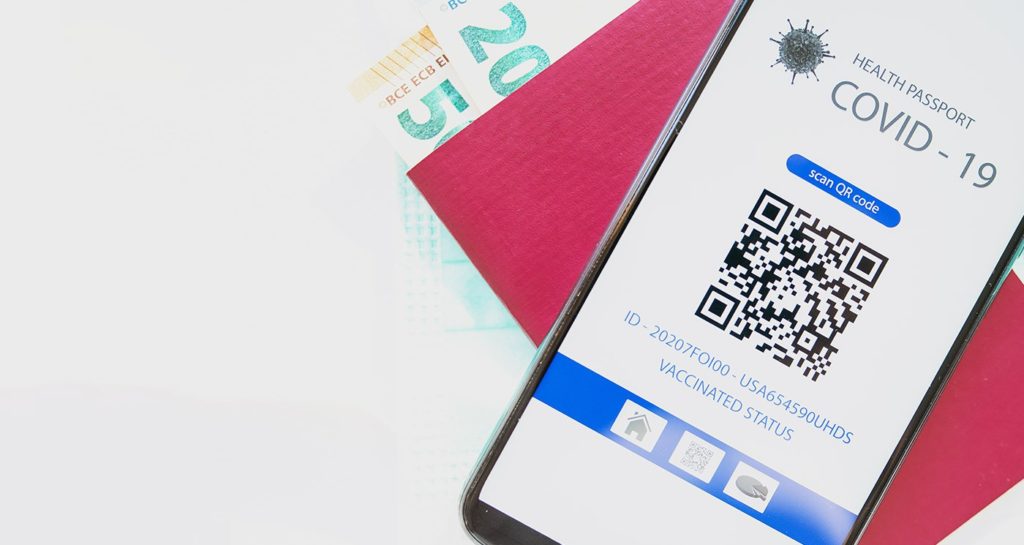Dr Sharon Hakkennes, senior director analyst at Gartner
Digital vaccine certificates, also known as vaccine passports, are emerging as a solution with the potential to support business and society to continue to reopen across the country … and across the world, while minimising the risk of a new wave of infection. They present an opportunity to facilitate the return of individuals vaccinated against COVID-19 to restricted spaces such as work locations and open borders for international travel.
In mid-January this year, a coalition of large technology and health companies launched the Vaccine Credential Initiative to create a system for storing and retrieving digital records of vaccinations. In the same time frame, the World Health Organisation (WHO) launched a digital health working group to develop a framework and standards for a smart digital vaccine certificate for yellow fever and COVID-19, paving the way to add other vaccines later.
High-profile efforts like these increase the potential that vaccine passports will become a reality, even as important questions remain, including the technology that will be used, the source and verification of data, and definitions of immunity among them.
Uncertainties of vaccine passports
There are a number of obstacles standing in the way of wide-scale adoption of vaccine passports. Private and public sector organisations must understand the pitfalls, as well as the promise, so they can plan policies if they become a reality.
Key questions that stakeholders, including policymakers, are looking to answer include:
- Standardisation – Who will set the standards? Will there be multiple standards worldwide? How is immunity defined?
- Use – How will the certificates be used? For travel? Work? Entertainment? Will the uses pass legal scrutiny?
- Acceptance – Who will accept certificates? If there are multiple certificates, will some be accepted more widely than others?
- Buy-in – Will people use the certificates? Will certificates have the support of governments?
- Equity – Can people access and manage their digital information? Will certificates create social stigmas or exacerbate the digital divide?
- Governance – Who will oversee the systems and data? How will privacy be protected? How will forgery be identified and combatted?
- Usefulness – Will certificates go out-of-date if vaccines don’t provide long-term immunity? Will certificates need immunity information for multiple strains? Will different groups exhibit different levels of vaccine effectiveness?
- Verification – How will people with immunity be verified? Who will have access to immunisation records? How will that data be confirmed as accurate?
- Infrastructure – Can existing systems handle the data and security needs of digital certificates? Can these systems be integrated and offer interoperability?
- Unintended consequences – Will digital certificates create greater distrust of vaccines? Will it create extra steps for vaccination? Will people be incentivised to get infected to get a certificate?
What society needs to achieve wide-scale use
For a digital vaccine passport solution to work, it must achieve wide scale end-user adoption. Given the above challenges, organisations considering using vaccine passports must buy in to governance frameworks that allow for the acquisition, equity, verification and sharing of immunisation data.
At a high-level, a digital vaccine passport must enable consent-based COVID-19 vaccination records to be accessed in a secure, verifiable and privacy preserving way. It must work across organisational and jurisdictional boundaries. It must also be built on international standards and in a secure, decentralised infrastructure. Data standardisation, in terms of what data is acquired, how it’s formatted and exchanged, is critical.
While many questions remain about vaccine passports, the outlook appears promising. Data-driven applications have already provided significant aid in addressing the pressing, global scenarios spurred by the pandemic. Investigating this technology in the near-term will inform the plans and strategies of public and private sector organisations – positioning them to stand prepared to leverage this solution in returning to normal.
About the author
Sharon Hakkennes is a senior director analyst at Gartner, focused on healthcare. In particular, she advises clients on clinical engagement and change management, strategy development, information management, data and analytics and ICT shared services delivery in the healthcare environment.
Source: PC and Associates Consulting

